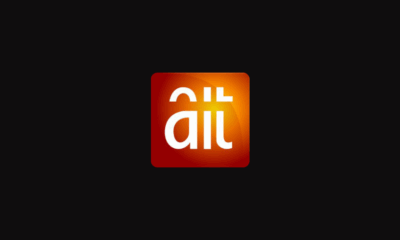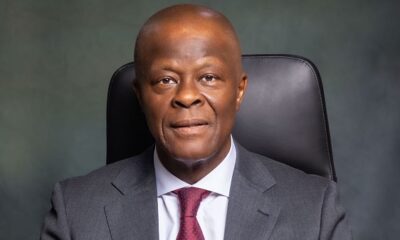FirstBank, Nigeria’s premier financial institution and financial inclusion services provider, was announced as the Best Corporate Bank at the recent prestigious Euromoney Awards for Excellence, Nigeria 2023.
The Bank clinched the coveted award based on its 130-year commitment to enabling its corporate customers achieve success through relevant and tailored financial solutions. FirstBank’s continuous investment in technology has been crucial to its leading industry role in optimally meeting the needs of its corporate customers. Recent investments in technology include the development of its smart and interactive Transaction Banking Platform known as FirstDirect2.0.
FirstDirect2.0 provides a one-stop shop online banking platform for corporates, offering best-in-class capabilities such as Payments, Collections, and Account Services, and a locally focused phased implementation of Trade and Supply Chain Finance, a first for the Bank.
The platform offers customers various solutions for corporate cash management (Payments, Collections and Liquidity Management). It will also deliver end-to-end trade solutions for corporate clients covering L/C creation, tracking, bidding and reconciliations.
The Bank’s Corporate Banking model is focused on ensuring that its clients get the same quality of service across the Bank’s geographical locations. The execution of this approach through the deployment of the Global Account Management (GAM) Framework, implemented to enhance cross-relationship management tailored to Customers with a Pan African footprint.
Dedicating the awards to its customers, Dr Adesola Adeduntan, CEO FirstBank Group said: “We are thrilled to announce that we have been recognised as the Best Corporate Bank in Nigeria at the Euromoney Awards for Excellence 2023.
“We say a heartfelt thank you to all our incredible customers for trusting us. This award is dedicated to YOU,” he concluded.
According to Euromoney, the “Awards for Excellence” – is the definitive annual awards programme of the global banking industry. The awards represent the highest distinction to the banks and bankers who matter most in an industry where differentiation is highly sought after and exceptionally difficult to demonstrate.”
“For over 30 years, Euromoney has recognised the banks and that have demonstrated their differentiation, pioneering a comprehensive awards programme that today remains the industry benchmark globally, it concluded.”
Amongst other awards, FirstBank recently added to its awards kitty, Best Corporate Bank Western Africa, 2023, by Global Banking and Finance; Best Internet Banking in Nigeria, 2023 by International Business Awards; the Most Innovative Banking Brand in Nigeria by Global Brands Awards as well as the Financial Institution of the Year 2023 by Afreximbank Pan-African Business and Development.
About FirstBank
First Bank of Nigeria Limited (FirstBank) is the premier Bank in West Africa and the leading financial inclusion services provider in Nigeria for 130 years.
With over 800 business locations and over 232,000 Banking Agents spread across 99% of the 774 Local Government Areas in Nigeria, FirstBank provides a comprehensive range of retail and Corporate financial services to serve its over 42 million Customers. The Bank has an international presence with subsidiaries operating in 9 other countries. These subsidiaries are FirstBank (UK) Limited in London and Paris, FirstBank in the Democratic Republic of Congo, Guinea, Sierra Leone, The Gambia; FBNBank in Ghana and Senegal as well as a Representative Office in Beijing, China. The Bank is at the forefront of promoting digital banking in the country and has issued over 13 million cards, the first bank to achieve such a milestone.
FirstBank has continued to make significant investments in technology, innovation and transformation, and its cashless transaction drive has been steadily accentuated with over 23 million active FirstBank customers signed up on digital channels including the USSD Quick Banking service through the nationally renowned *894# Banking code.
FirstBank’s commitment to Diversity is shown in its policies, partnerships and initiatives, such as its employees’ ratio of female to male (39%:61%); and 32% women in management), as well as the FirstBank Women Network, an initiative that seeks to address the gender gap and increase the participation of women at all levels within the organization.
In addition, the Bank’s membership of the UN Women is an affirmation of a deliberate policy that is consistent with UN Women’s Women Empowerment’s Principles – Equal Opportunity, Inclusion, and Nondiscrimination.
Since its establishment in 1894, FirstBank has consistently built relationships with customers focusing on the fundamentals of good corporate governance, strong liquidity, optimised risk management and leadership. Over the years, the Bank has led the financing of private investment in infrastructure development in the Nigerian economy by playing key roles in the Federal Government’s privatisation and commercialisation schemes. With its global reach, FirstBank provides prospective investors Investors wishing to explore the vast business opportunities available in Nigeria an internationally competitive world-class brand and a credible financial partner.
For six consecutive years (2011 – 2016), FirstBank was named “Most Valuable Bank Brand in Nigeria” by the globally renowned The Banker Magazine of the Financial Times Group and “Best Retail Bank in Nigeria” eight times in a row, 2011 – 2018, by the Asian Banker International Excellence in Retail Financial Services Awards.
Notably, in 2022, the Bank took a long stride on its growth trajectory with the Bank’s Viability and Long-Term Issuer Default Ratings upgraded to ‘B’ from ‘B-‘ (with Outlooks Stable) by Fitch, a leading global rating agency. This is an indication of the Bank’s strong internal capital generation and the corresponding recession of its risks to capitalisation. Fitch also upgraded the Bank’s National Long-Term Ratings to ‘A (nga)’ from ‘BBB (nga)’, to reflect its improved creditworthiness relative to that of other issuers in Nigeria. Furthermore, the Top 100 African Bank Rankings 2022 released by The Banker Magazine revealed FirstBank’s ranking as number one in Nigeria in terms of Overall Performance, Profitability, Efficiency and Return on Risk.
Other laudable feats in 2022 include FirstBank’s international recognition on major indices by Euromoney Market Leaders, an independent global assessment of the leading financial service providers where FirstBank was crowned:
Market Leader: (tier-1 recognition) in Corporate and Social Responsibility (CSR),
Market Leader: (tier -1 recognition) Environmental, Social and Governance (ESG),
Highly Regarded: in Corporate Banking and Digital Solutions,
Notable: in SME Banking.
Also, in 2022 International Finance Magazine named the Bank “Most Innovative Banking Product in Nigeria” and “Best Retail Bank in Nigeria”. FirstBank was also awarded “Best Corporate Banking Western Africa, 2022” and “Best CSR Bank Western Africa, 2022’’ by Global Banking and Finance Magazine. Other notable awards in FirstBank coffers include: “Best Bank in Nigeria” by Global Finance Magazine – fifteen times in a row; “Best Private Bank in Nigeria-2021” awarded by Global Finance magazine; “Best Internet Banking Nigeria” and ‘’Best CSR Bank Africa’’ by International Business Magazine.
In 2023, FirstBank received notable awards including “Best Private Bank for Sustainable Investing in Africa 2023” by Global Finance Awards; “Best Sustainable Bank in Nigeria 2023” by International Investors Awards; “Best Bespoke Banking Services in Nigeria 2023” by International Investors Awards; “Best Financial Inclusion Service Provider in Nigeria 2023” by Digital Banker Africa; and “African Bank of the Year” by African Leadership Magazine.
Our vision is ‘To be Africa’s Bank of first choice’ and our mission is ‘To remain true to our name by providing the best financial services possible’. This commitment is anchored on our core values of EPIC – Entrepreneurship, Professionalism, Innovation and Customer-Centricity. Our strategic ambition is ‘To deliver accelerated growth in profitability through customer-led innovation and disciplined execution’ and our brand promise is always to deliver the ultimate “gold standard” of value and excellence to position You First in every respect.


 BIG STORY12 hours ago
BIG STORY12 hours ago
 BIG STORY12 hours ago
BIG STORY12 hours ago
 BIG STORY24 hours ago
BIG STORY24 hours ago
 BIG STORY5 days ago
BIG STORY5 days ago
 BIG STORY4 days ago
BIG STORY4 days ago
 BIG STORY1 day ago
BIG STORY1 day ago
 BIG STORY8 hours ago
BIG STORY8 hours ago
 BIG STORY2 days ago
BIG STORY2 days ago




















